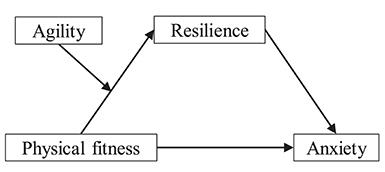The impact of physical exercise on anxiety and health-harming behaviour
Apr 04, 2023
This paper discusses the impact that physical exercise can have on anxiety and health-harming behaviour. Regular physical activity is an important component of a healthy lifestyle and has been associated with a reduction in anxiety levels, as well as reduced risk of developing chronic diseases. Additionally, it has also been found to reduce health-harming behaviours such as smoking and excessive alcohol consumption.
This paper will examine the evidence linking physical exercise to lower levels of anxiety and decreased health-harming behaviours. First, we will look at how regular physical activity can provide physiological benefits that may lead to improved mental health outcomes – such as reducing stress hormones, increasing endorphins (feel good hormones) and improving overall mood. We will then explore the role that regular physical activity can play in reducing anxiety disorders and decreasing the likelihood that an individual will engage in health-harming behaviours. Finally, we will discuss why physical activity is important for mental health and how it can be incorporated into a comprehensive plan for managing anxiety and reducing health-harming behaviours.

Physical exercise has the potential to provide a range of physiological benefits that can help reduce levels of anxiety and improve mental health. Regular physical activity increases heart rate and breathing, leading to increased oxygen delivery to the body’s cells and tissues. This in turn can cause an increase in endorphins which are associated with feelings of improved wellbeing and relaxation. Additionally, regular exercise can help decrease stress hormones such as cortisol, resulting in reduced anxiety symptoms.
Furthermore, there is evidence that regular physical exercise can have a direct effect on reducing the symptoms of anxiety disorders such as generalized anxiety disorder (GAD) and social anxiety disorder (SAD). Research suggests that aerobic exercise may be an effective form of treatment for these conditions, particularly when combined with cognitive behavioural therapy (CBT). Regular physical activity may also reduce the likelihood of developing an anxiety disorder in individuals who are prone to stress.
Finally, research has shown that high levels of physical exercise can reduce health-harming behaviours such as smoking and excessive alcohol consumption. This is likely due to exercise increasing feelings of wellbeing which can lead to improved self-control and reduced cravings for substances that have a negative impact on health. Furthermore, regular physical activity may help increase resilience when faced with stressful situations which could be beneficial in reducing reliance on unhealthy coping mechanisms.
